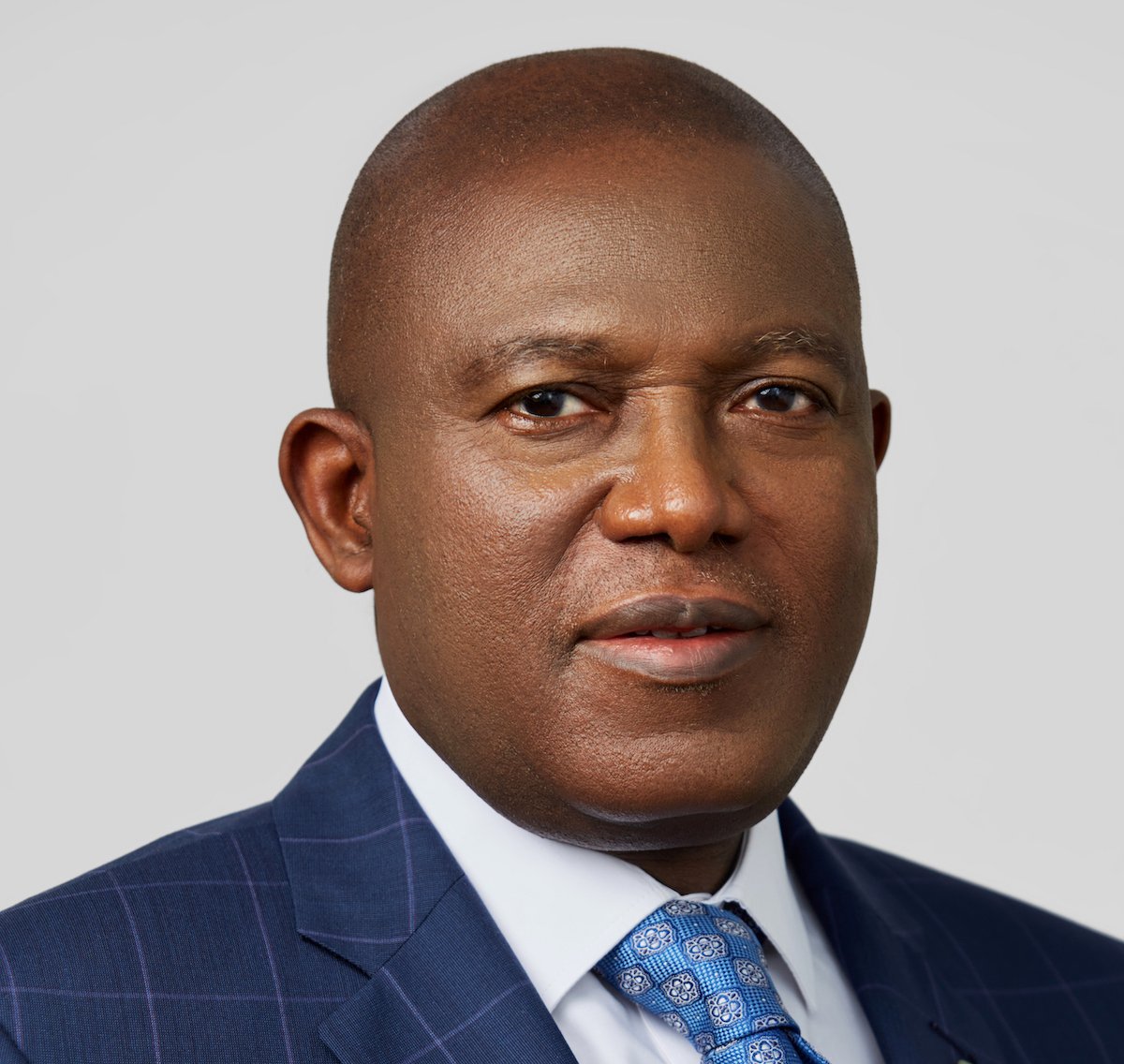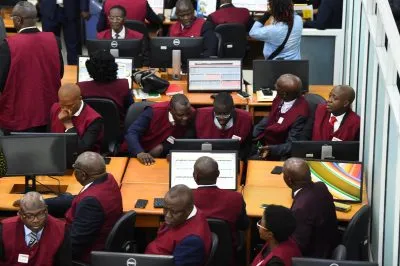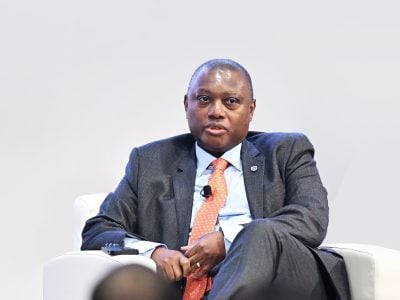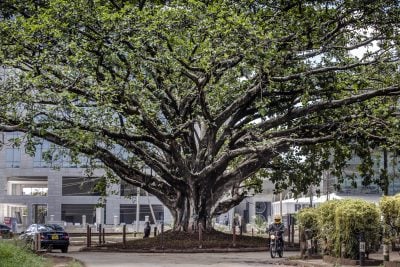The Bank of Industry (BOI) is Nigeria’s oldest and largest development institution. Although it is owned by the government, it was set up and is run like a private sector bank. It is a limited liability company with strong corporate governance. Its mandate is to support Nigeria’s real sector, especially the MSME segment.
The economic, health and social impact of Covid-19 has stretched the bank’s capacity to fulfil its mandate to the limit. However, as this interview shows, the bank did not back down from responding robustly to these challenges.
The bank’s contribution in the battle to support these enterprises on a sustainable basis during such a tough phase was underscored when it won the 2021 African Banker Award for Innovation in Financial Services to add to other awards it won from various institutions in 2020 including the ‘African SME Bank of the Year’, ‘African Deal of the Year’ and ‘Best Bank in Support of Manufacturing 2020’.
African Banker Editor Anver Versi is in conversation with the bank’s MD/CEO, Olukayode Pitan.
African Banker: The Covid-19 pandemic has wreaked havoc on economies across the globe; what has its impact been on Nigeria?
Olukayode Pitan: On 27 February 2020, Nigeria confirmed its first case of Covid-19. In response, to curb the spread, the Federal Government of Nigeria (FGN) introduced a number of initiatives, including a lockdown which resulted in the closure of schools, workplaces and businesses, and restrictions on movement across the country.
As happened in other economies, the implementation of the lockdown across the country resulted in a material decline in the country’s economic activity (with sectors such as hospitality, tourism, entertainment, education, and transportation being affected).
It also exerted significant pressure on food prices, with food inflation and headline inflation increasing to 16.17% and 15.8% respectively, as of 31 December 2020. Microenterprises were more impacted by the lockdown than their SME and larger counterparts as they depend heavily on daily income for survival.
Not surprisingly, the Nigerian economy went into a recession during the third quarter of the year (its second in the last five years) as GDP contracted by 1.92% in 2020.
However, Nigeria was able to exit the recession in the first quarter of 2021 as GDP grew by 0.51% (year-on-year) in real terms. This was achieved by various expansionary policies implemented by the government as well as the strong collaboration of private sector players working with the government on various initiatives.
Development banks such as yours have been called upon to mitigate the negative impact of the pandemic, especially on SMEs, which form the core of the country’s economic structure. What steps have you taken to do this?
In response to the pandemic, we undertook certain actions to ease the burden on our customers, including the following:
- Reduced interest rates on all BOI-funded projects by 2% with effect from 1 April 2020, for a period of one year. This palliative has been extended by an additional year.
- Extended an additional moratorium of three months on principal repayment, granted to all beneficiaries of BOI funds between 1 April and 31 June 2020.
- Worked with our funding partners to implement interest rate reductions on some of the funds that we manage.
- Reviewed all ongoing projects to ascertain the risk exposure, and to support customers operating in sectors most affected by the pandemic through loan restructurings.
Support was also extended to those customers in sectors that were favourably impacted by the pandemic or demonstrated opportunities for growth like the ICT, agro and health sectors.
Being a socially responsible organisation, the bank donated the sum of ₦962m ($2.34m) towards the Coalition Against Covid-19 (CACOVID) and other initiatives at the federal and state levels to address the negative impact of the pandemic.
In addition, we improved our capacity to support Nigerian enterprises by raising about $2.1bn from the international debt capital market in 2020. We also partnered with the Federal Government to help manage the Nigerian Economic Sustainability Plan (NESP) ₦75bn ($180m) MSME Survival Fund and the ₦50bn ($120m) Export Expansion Facility.
We also partnered with various state governments to launch the State Enterprise Empowerment Programme (SEEP), designed to support MSMEs from their respective states.
In 2020, you won the African Banker Deal of the Year award. Could you kindly expand on this?
In March 2020, BOI successfully closed a €1bn syndicated guaranteed loan facility. This deal was originally launched at €750m, but later upsized to €1bn due to oversubscription.
The deal marked the second major international credit facility that had been successfully concluded by BOI within the last two years. About 24 international banks subscribed to the offer, which had African Export-Import Bank, Credit Suisse, Rand Merchant Bank, and Sumitomo Mitsui Banking Corporation, as joint mandated lead arrangers, underwriters and bookrunners of the syndicated medium-term facility.
The deal was made possible by a guarantee provided by the Central Bank of Nigeria (CBN) and a currency swap arrangement to hedge the foreign exchange risk.
The purpose of the deal has been to enhance the capacity of BOI to effectively support micro, small, medium, and large enterprises across key sectors of the Nigerian economy with affordable loans of medium to long-term tenor, alongside moratorium benefits. It is expected that this support will help revitalise Nigeria’s industrial sector.
You entered a number of programmes with the Federal Government, such as the social investment programme, to help the country adapt and cope with the effects of the pandemic. Could you outline these programmes and their aims?
As the pandemic began to take its toll on the Nigerian economy, the bank sought partnerships with the Federal Government to manage programmes that would alleviate its negative effects. Some of these programmes included:
The ₦75bn MSME Survival Fund: The bank is currently managing the execution of the Nigeria Economic Sustainability Plan MSME Fund (NESP-F) aimed at reviving and re-establishing MSMEs in Nigeria in the wake of the Covid-19 pandemic.
A component of the NESP-F is the ₦75bn MSME Survival Fund, which comprises a ₦60bn payroll support programme and Artisan Transport Grant, and a ₦15bn Guaranteed Off-take Scheme.
The fund is to be disbursed as grants to support vulnerable micro and small enterprises in meeting their staff obligations and to secure jobs within the MSME space from the adverse effects of the pandemic. The scheme is aimed at securing over 1.7m jobs.
The ₦50bn Export Expansion Fund: The bank was also selected to manage the ₦50bn export expansion fund, which is expected to develop and promote export initiatives.
This includes providing financial support to organisations in the non-oil export value chain negatively affected by the Covid-19 pandemic, as well as developing export opportunities and programmes that the Nigerian Export Promotion Council (NEPC) may identify.
The fund also serves as a source of supplementary funding for dealing with high costs of production, marketing and distribution, arising mainly from infrastructure deficiencies and other ancillary factors beyond the control of exporters.
You are also engaged with the World Bank in an economic recovery programme. How does this work and what has been the impact?
The World Bank’s Nigeria Covid-19 Action Recovery and Economic Stimulus (NG-CARES) programme is intended to help increase access to social transfers and basic services, as well as provide grants to poor and vulnerable households. It will also strengthen food supply chains for poor households while facilitating recovery and enhancing the capabilities of MSMEs.
The World Bank conducted a thorough assessment of BOI’s proprietary micro-credit platform and certified it credible to be used for the delivery of the MSME component of the CARES programme. As a result of this recommendation, 26 states have elected to use the BOI-GEEP (Government Enterprise Empowerment Programme) infrastructure as their preferred delivery platform.
In addition to our role as state programme execution partners, the Federal Technical Committee on CARES has requested that BOI provide technical support to the committee to promote its national effort to deliver CARES by building institutional capacity to oversee programme delivery, as well as providing a centralised structure for monitoring and reporting across all CARES result areas.
Although you are a public institution, you work like a private bank and have posted healthy profits in the past. How was the past year in this regard?
Despite being a public institution, BOI is a limited liability company, guided by the Nigerian Company and Allied Matters Act. This is because the government understands that the only way that we can effectively achieve our mandate to support enterprises in Nigeria is by being managed as a private institution, and being financially sustainable, with a strong enough balance sheet to attract the required funding to be able to continuously support MSMEs and large corporates in the country.
2020 was actually a good year for the bank in spite of the impact of the pandemic. As I mentioned earlier, we were able to raise about $2.1bn from two syndicated lending transactions in the year, which solidified our ability to continuously support Nigerian enterprises with innovative financing solutions.
We closed the year with total assets of ₦1.86trn ($4.5bn), a 79% growth over the previous year. Total equity and profit before tax were ₦336.48bn ($820m)and ₦35.5bn ($86m)respectively.
Given the additional responsibilities placed on the bank during this difficult period, are you satisfied that your fund-raising efforts will be sufficient?
Based on our mandate and corporate objectives, we need to continually seek additional funding to ensure our ability to keep providing affordable loans to Nigerian enterprises.
According to existing research from PwC, the financing gap for Nigerian MSMEs is about ₦617.3bn ($1.5bn) annually. So, for MSMEs
in Nigeria to survive and thrive, a minimum of $1.5bn must be injected into that segment on an annual basis.
While the Bank of Industry was able to raise more than that amount last year, I am sure you realise that the probability of one institution raising such a value on a continuous basis is low.
We are however undeterred in our ambition to provide continuous support to MSMEs. Thus, in pursuit of such ambition, we are already back in the capital market looking to raise another €750m through the Eurobond route.
How have you managed internally to adapt to the needs imposed by the pandemic? Have you had to retrain your staff?
In 2019, before the pandemic began, we had kicked off a process re-engineering and IT Infrastructure project to overhaul our systems, to enable us to be more efficient and better serve our customers in the future.
Who could have known that that future was already around the corner? I am thrilled that this re-engineering project came at the right time as we were able to create a technology-enabled environment that has allowed staff to work remotely since March 2020.
Our business continuity plan was also successfully deployed to ensure continued service to our customers without interruptions.
We also supported this effort with regular cyber- security trainings and awareness. Due to the quality of staff at BOI, it was not shocking to see our staff easily transition into a work-from-home model.
As a matter of fact, we held a competition in October 2020 to determine the staff with the Most Creative Home ‘Workstation’ and it was interesting to see how our people had creatively re-organised their homes to better meet their work needs.
We have also transitioned our regular staff training from in-person to online sessions.
I believe your mandate goes beyond core banking functions and includes capacity building. What are your priorities in this regard?
That is correct. At BOI, we have seen that business survival goes beyond improving the access to affordable finance. Our customers’ future, particularly the MSMEs’ ability to survive and remain sustainable, relies heavily on the provision of capacity building programmes.
Our intervention in this space cuts across youth, MSMEs, and women businesses. For instance, all our youth programmes include free capacity building in business management modules to ensure that they are adequately equipped to successfully run their businesses. We have trained about 10,000 youths through these programmes.
Also, as part of the North-East Rehabilitation Fund (NERF) programme, we were able to train over 6,000 female beneficiaries through NGOs, on skills acquisition and financial literacy information, to allow them to efficiently utilise this facility.
We have also partnered with the University of Lagos to set up an incubation centre to provide students with practical tech start-up skills given by mentors and coaches, as well as to support the development of viable solutions from ideas to enterprises.
This same partnership has been replicated with Vatebra (in Lagos State) and Bayelsa, Kaduna and Kebbi State governments. This is our very own way of supporting technology entrepreneurship and digital skills capacity building within Nigeria.
I believe that is why you won the 2021 African Banker Award for Innovation for Financial Services. Congratulations. Finally, Mr Pitan, please summarise the past year and your plans for the coming year.
2020 was a year of learning for us. But more importantly, it was a wake-up call for BOI and all organisations in general to think about their businesses in a different light.
The onset of the Covid-19 pandemic year brought its own set of challenges for governments, financial institutions and MSMEs globally.
Our focus at BOI is to continue to support the sustainable growth of Nigerian industries as well as support the Federal Government’s efforts at all levels.
We are aware of the difficulties that MSMEs have experienced during this period and recognise that their ability to survive and thrive will largely depend on the support we provide.
We have a lot of work on our hands, this year and in the future. We have about $2bn we need to aggressively disburse to help revitalise the Nigerian industrial sector.
There is also the €750m Eurobond facility, which shall hopefully be concluded shortly and deployed towards key initiatives in our economy.
Additionally, with trade under the African Continental Free Trade Agreement (AfCFTA) now active, we have a huge role to play to adequately support Nigerian enterprises and drive free trade on the continent.
I am quite confident that we will be up to the task, as we have used this time to further strengthen our processes, and build our capacity to deal effectively and efficiently with the work that lies ahead.
Want to continue reading? Subscribe today.
You've read all your free articles for this month! Subscribe now to enjoy full access to our content.
Digital Monthly
£8.00 / month
Receive full unlimited access to our articles, opinions, podcasts and more.
Digital Yearly
£70.00 / year
Our best value offer - save £26 and gain access to all of our digital content for an entire year!
 Sign in with Google
Sign in with Google 



